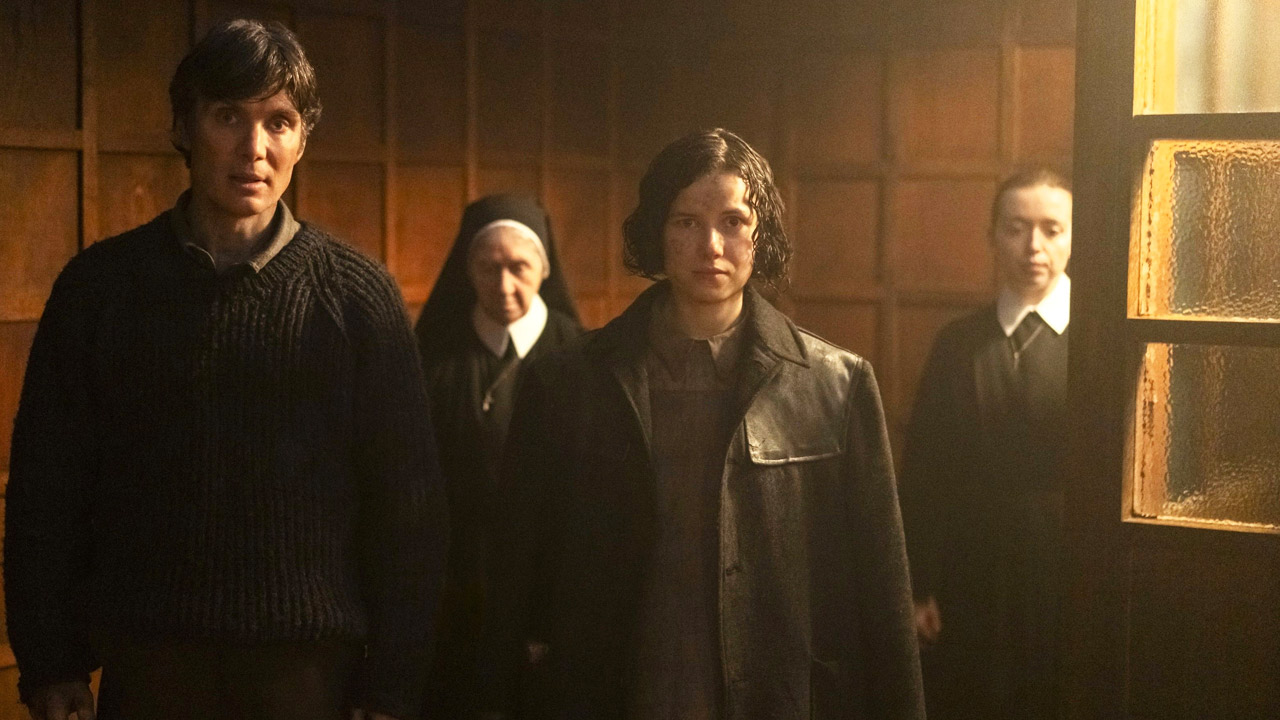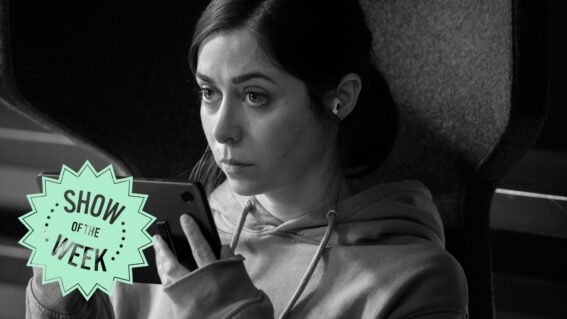The quiet power of Cillian Murphy in Small Things Like These

With somber tones, evocative imagery, and a morally complex leading performance from Cillian Murphy, Small Things Like These is a deep-thinking and engrossing drama, writes Luke Buckmaster.
Small Things Like These leaves absolutely no doubt that Cillian Murphy looks great in front of a log fire, face illuminated by flickering flames. Dim lighting and a soft orange glow do, admittedly, bring an extra hue of moodiness to all of us—but still, there’s something else about Murphy, something naturally enigmatic, something downright Dickensian in his sharp features and moody vibes. They seem to drift in from another spot on the temporal plane. He’s the kind of guy who could toke the hell out of a churchwarden pipe, perhaps while reading the periodicals, before being visited by the Ghost of Christmas past…
Tonally this film is coarse and grainy rather than magical but it does, in fact, take place in the lead up to Christmas, set in 1985 in the Irish port town of New Ross. Director Tim Mielants opens with church bells ringing, dogs barking, morning’s early light. The skies are tempered and the weather pretty crumby, reflecting the film’s hardscrabble proletariat vibes. Texturally it looks blue, grey and chalky, a little like coal—a product the protagonist, Murphy’s Bill Furlong, sells and delivers for a living. He’s the father of five girls and lives a modest life.
Adapted from Claire Keegan’s novel of the same name, Mielant emphasises the protagonist’s moral integrity in subtle but pronounced ways. Early on for instance Bill attends community Christmas carols and watches on with a happy, satisfied expression on his face; without dialogue labouring the point, we know this is a man who takes pleasure from simple things. It’s interesting how quickly we accept that Bill is a decent, compassionate human being, given Murphy’s intensely inscrutable looks can so easily lend themselves to morally dubious characters—from the enigmatically nuanced (Oppenheimer) to the flat-out villainous (Red Eye, Batman Begins).
Not much occurs plot-wise in the first act of Small Things Like These, Mielants gently acclimatising us to the rhythms and (soon to be interupted) uneventfullness of the protagonist’s life. Carefully meted out visions of his childhood have a misty quality, emulating the looseness of memories, which never have defined beginning or end points. One scene illustrates a Christmas in which, belonging to a poor family, young Bill (Louis Kirwan) was rather disappointed to receive a rubber hot bottle as his gift—a minor dramatic event in the scheme of things, but a moment that really registers.
Knowing that we’re following a person of integrity becomes significant when Bill is confronted with a moral dilemma: while delivering coal to a convent, he’s approached by a woman who (for reasons best left to the film to disclose) pleads him to help her. He leaves without assisting, but we know he’ll turn the scenario over in his mind, and listen to his moral instincts. Bill’s wife Eileen (Eileen Walsh) encourages him to look the other way, saying he’s “always been soft-hearted.” And the nuns appear to be blackmailing him: if he tells anyone about it, his girls might not end up in their school.

I won’t tell you, of course, what he decides to do; that might spoil the plot’s most significant developments. I will say that at one point it struck me that those illustrations of his past (“flashbacks” almost feels too crude a word, given their elegance) are less about showing the breadth of his life, event-wise, than the breadth of his conscience: building a picture of how his sense of right and wrong were formed (this is a very difficult thing to do, or at least to do well, without over-stating it). Past and present have a similar melancholic temperature: more than a drizzle of rain; not yet a downpour.
Tonally it works a treat and Mielants wisely trusts Murphy—generously spacing out scenes, giving his performance room to breathe, letting him move in quiet evolutions, scaling back plot. The danger of this approach is that it doesn’t provide enough story to hold onto, potentially feeling airy and in need of finer details. But the execution of this film is very rich and satisfying.


















